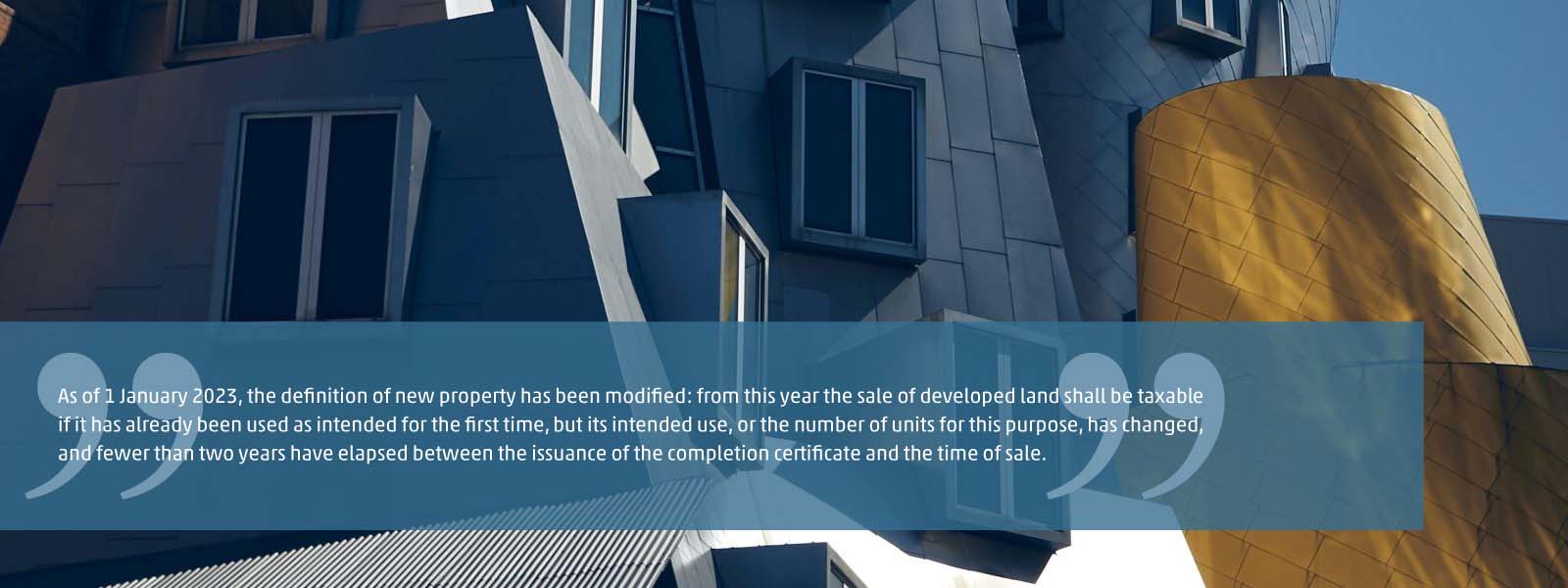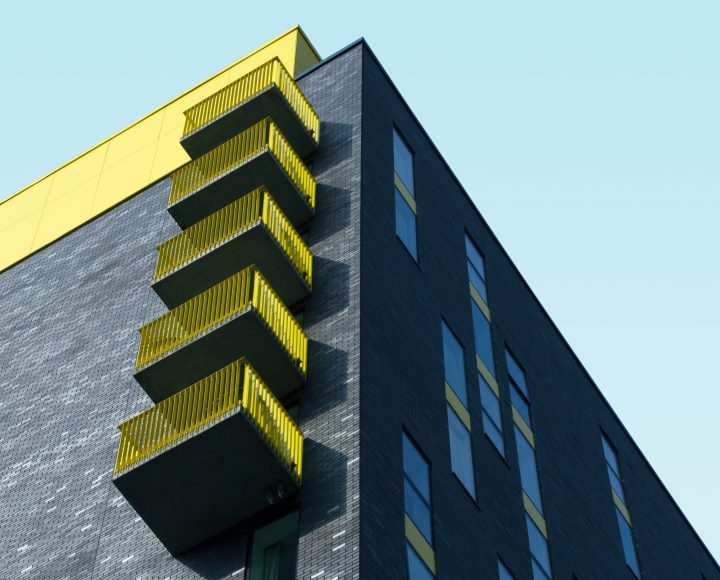The 2023 tax law amendments introduced significant changes to the taxation of real estate in Hungary. In terms of value added tax, you can even benefit from a relaxation of the rules, owing, for instance, to the extension of the 5% VAT rate related to the sale of new homes, while for duties, the last loophole has essentially been closed, and you may even have to pay double.
5% VAT on homes to stay
The good news regarding the taxation of real estate is that by elevating the decree rule on the state of emergency into law, the preferential 5% VAT on the sale of new homes has been extended until 31 December 2024. This reduced tax rate may also be applied after 31 December 2024 – until 31 December 2028 – for projects already launched too, if the building permit is finalised by no later than 31 December 2024, or if the construction has been notified to the authorities by that date in accordance with the simple notification rules.
The reduced 5% rate can still only be applied for the sale of new properties, it does not apply for services. A property shall be regarded as new if it has not yet been used as intended, or if it has, then two years have not yet passed between the official completion certificate becoming final and its sale. However, as of 1 January 2023, the definition of new property has been modified slightly: from this year the sale of developed land shall be taxable if it has already been used as intended for the first time, but its intended use, or the number of units for this purpose, has changed, and fewer than two years have elapsed between the issuance of the completion certificate and the time of sale.
What to look out for regarding the taxation of real estate?
The preferential VAT rate of 5% for new residential properties is only applicable if the total usable floor space does not exceed 150 square metres for a multi-occupational residential property, or 300 square metres for detached family homes.
Areas not required for the intended use as a dwelling shall not be construed as residential property, even if built adjacent to the residential building, such as a garage, workshop, shop or farm building.
It is important, though, under what conditions an open-air car park or a storage facility can be included in the square metre limit set for applying the reduced rate. In some cases, if the area of the property for sale includes an open-air car park for example, because it is connected to the building, the application of the 5% reduced rate may be at risk.
Lower tax risks for construction
In addition to the extension of the 5% VAT on homes, the amendment of building rules brings good news in terms of the taxation of real estate in Hungary. This is because many legal disputes previously arose between taxpayers and the tax authority with regard to contractor services for the building and conversion of real estate. If a contractor incorrectly issued a reverse charge invoice, the Hungarian tax authority (NAV) objected to the VAT deduction at the client and could potentially levy a penalty of up to 50% of the deducted VAT. In accordance with the changes to building rules, the rules for applying reverse charging have now also been clarified. The amendment means that all construction/installation and other assembly work for the construction, conversion, and change of use, etc. of real estate that requires a permit or having to notify a public authority is subject to the reverse charge mechanism.
In practice, this means that reverse charging may be applied for these services even if they are not subject to a building permit or to simple notification, though permits from other authorities are required. This includes work subject to a heritage protection permit or notification, a change of use permit, or a town planning notification procedure. Nevertheless, you must pay attention when applying the transitional rules since, as a result of the rule change, an invoice on a given service which may have been subject to direct taxation in 2022 may now have to be issued with reverse charging under the new rules.
Last loophole of duty payment closed
The Act on Duties currently also contains a rule that exempts transfers of real estate between related companies from payment of the onerous property transfer duty. The condition for the exemption is that the core activity of the buyer when the duty payment liability arises must be the rental or operation of own or rented real estate or the sale of own real estate. Based on the previous rules regarding the taxation of real estate in Hungary, however, this condition only had to be met at a given time, which, according to the legislator, provided grounds for abuse. From this year onwards, the condition on the scope of activity remains, but a new 50% sales revenue limit must also be considered, which the person acquiring the real estate must make a statement on to the tax authorities. In other words, the duty exemption only applies if the sales revenue of the acquirer from the preferential activities relating to the real estate represents at least 50% of the total sales revenue (in the previous year).
We might rightly ask what sanctions we will face if the sales revenue condition is not met for whatever reason. If this declaration or undertaking are not complied with, the acquiring party must report this to the state tax authority, which will compel the acquiring party to pay the unpaid duty plus an additional 50%. If they fail to comply with this obligation and the state tax authority finds in the course of a tax inspection that the declaration or undertaking were not complied with, the acquiring party will be charged twice the amount of the unpaid duty.
CSOK: good news on the duty
Another positive change regarding the taxation of real estate in Hungary is the fact that the family housing support (CSOK) can now be claimed not only for the purchase of a home, but also for home extensions. While no duty is payable on the extension of your own home, joint property is created upon extending property owned by another party (e.g. attic conversion), and until now the person carrying out the investment was liable for duty. As a result of the favourable amendment, exemption is now granted for those claiming the CSOK benefit when extending homes owned by third parties too.
If you need advice on the 5% VAT rate on the purchase or sale of new properties, building rules or reverse charging rules, or have other questions related to the taxation of real estate in Hungary, our VAT experts are here to help you.











